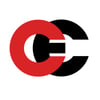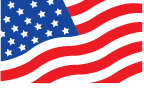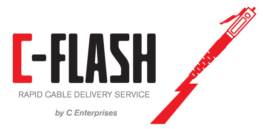
The digital era is driving the need for increased transmission speeds and bandwidth. Big Data and the Internet of Things (IoT) are fueling the change from 10 gigabits per second (Gb/s) to 40 and 100. Both 40 and 100 GB/s transmission use plug-and-play MPO/MTP trunk assemblies to enable faster deployment and to handle larger amounts of complex data from more than one source. In the face of next-generation transmission speeds, data centers need to optimize their overall fiber cabling performance. They need to understand the differences in quality between types of fiber.
Not All Assemblies Are Created Equal
A study by Siemon Labs sheds light on the multiple shortcomings of generic assemblies. The company tested 36 random samples of multi-fiber MPO/MTP assemblies they gathered from four low-cost assembly houses. The sample pieces were:
- 24-fiber plenum-rated MPO/MTP trunk assemblies. These assemblies had 0.5-meter breakouts to two 12-fiber connectors.
- 12-fiber MPO/MTP-to-LC hybrid assemblies with 0.5-meter breakouts to six duplex LCs.
The company tested each assembly for mechanical reliability, cleanliness, end-face geometry, and overall performance. They used TIA and IEC standards to judge each assembly. They found a significant difference between the performances of the generic fiber assemblies and the performance of higher-quality ones. The four generic assemblies tested failed to meet even the minimum requirements across all critical parameters.
What Sets Good Assemblies Apart from Poor Ones?
The study used four critical performance indicators to assess the generic cable assemblies. The first was an end-face geometry analysis to ensure standards compliance as defined by IEC PAS 61755-3-31. The performance of fiber optic connectivity depends on the angle of the polish, fiber protrusion height, maximum height differential among fibers, and maximum adjacent fiber height difference. Three of four samples in the study failed four out of six requirements.
Siemon also subjected all samples to an optical inspection for defects or scratches. They found fiber core fractures, ferrule contamination, and other irregularities that could undermine performance and network integrity on virtually all the samples. After cleaning, 25 percent of the contaminated samples failed. Next, researchers assessed the optical performance of the samples, checking for return loss and insertion loss compliance. One manufacturer had one or more insertion loss failures, while three out of nine manufacturers had one or more failures in return loss.
Finally, the researchers tested for mechanical reliability. This involved various mechanical tests such as torsion and impact testing. Mechanical tests ensure fiber assemblies can endure environmental conditions that may arise in real-world situations, such as physical contact over time. All generic samples exhibited one or more failures during mechanical testing. Some samples had fiber breaks while others had connector breaks and deformations. This part of the study proved the inability of the generic assemblies to hold up under the demands of real-life applications.
How to Protect Your Company from the Risks of Generic Assemblies
The Siemon study showed that there are real, scientifically proven differences in performance levels of generic assemblies compared to high-quality ones. At C Enterprises, our custom fiber cable assemblies stem from decades of industry experience. We manufacture our assemblies in a world-class facility, creating them with the highest quality components and expert assembly. We believe that one failure is too many. That’s why we personally test each and every cable before it arrives at its destinations.
C Enterprises provides custom U.S. made fiber assemblies in industry leading short lead times. Non-standard lengths, special labeling and packaging, custom bundles and leg staggering – you name it, we can build it. C Enterprises builds fully EIA/TIA compliant cable assemblies in our ISO certified U.S. manufacturing facility. To place a custom cable assembly order using our C-Flash service, contact us today.







